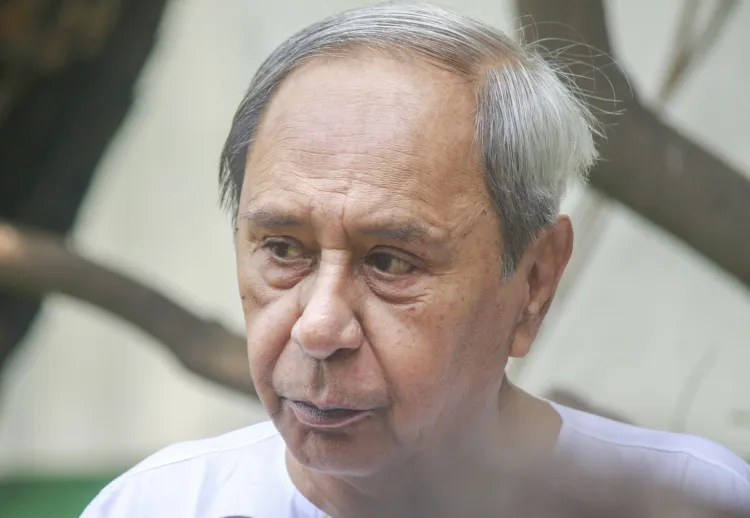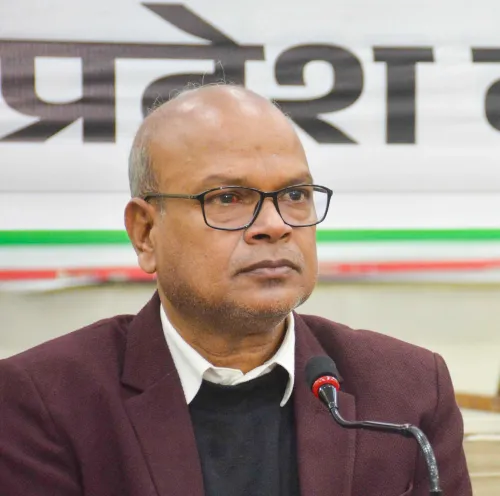What Clarity and Accountability is Naveen Patnaik Seeking on the Mahanadi Water Sharing Dispute?

Synopsis
Key Takeaways
- Naveen Patnaik emphasizes the need for transparency in the Mahanadi dispute.
- The decision for a 'mutual agreement' raises concerns.
- Urgent clarity is demanded from the government.
- Stakeholder involvement is crucial.
- Legal rights on water must be safeguarded.
Bhubaneswar, July 24 (NationPress) The Leader of Opposition (LoP) in the Odisha Assembly, Naveen Patnaik, raised significant concerns on Thursday regarding the state government's position on the Mahanadi river water-sharing conflict, calling for utmost transparency and accountability in this matter.
The former Chief Minister urged the government to provide prompt and clear answers to the issues he highlighted regarding the dispute.
He pointed to the state government's recent decision to seek a resolution through a 'mutual agreement' with the neighboring state of Chhattisgarh.
This decision followed a high-level meeting led by Chief Minister Mohan Charan Majhi on Wednesday.
Patnaik argued that this move raises critical questions that deserve attention.
“What does this 'mutual agreement' entail? The Mahanadi is the lifeline of Odisha. The state government must promptly convene an all-party meeting to clarify what type of compromise is being discussed or has already been decided in collaboration with the BJP government in Chhattisgarh,” he emphasized.
“Is Odisha stepping back from the legal process? Will the state continue its pursuit before the Mahanadi Water Disputes Tribunal? Or is the government planning to forgo the legal battle?” the BJD leader further questioned.
He criticized the government's silence, especially with only eight days left before the Tribunal hearing scheduled for August 2.
“Why hasn’t the government consulted stakeholders, political parties, and the public? Is the state BJP government covertly negotiating a settlement with another BJP government, potentially compromising Odisha’s water rights? The Mahanadi is not merely a river; it embodies the essence of our state. There must be complete transparency and accountability,” stated Patnaik.
He recalled that during a hearing of the then BJD government's petition under the ISRWD Act, 1956, on January 23, 2018, the Supreme Court instructed the Central government to establish the Mahanadi Water Disputes Tribunal.
Patnaik noted that the BJD’s persistent efforts and strong public pressure eventually led to the Union Cabinet approving the Tribunal's formation.
Consequently, on March 12, 2018, the Central government officially set up the Mahanadi Water Disputes Tribunal, based in New Delhi, following the Supreme Court’s directive.
“However, there is now a growing concern that this hard-fought legal battle is being quietly undermined. The government has not clarified what type of 'mutual compromise' is being considered, nor has it involved the public. Has the legal route been abandoned? Is Odisha’s rightful claim on the Mahanadi water being diluted in secrecy?” questioned Patnaik.










